“Buen camino” is the greeting travelers on the Camino de Santiago exchange: literally, “good road,” more figuratively, “Have a good walk.”
The Camino is a network of roads that pilgrims followed for centuries. They all lead to Santiago de Compostela in Galicia in northwestern Spain, where, tradition holds, the body of the apostle St. James was discovered some 800 years after he was beheaded in Jerusalem.
Today it’s an increasingly popular route to travel for myriad reasons, from spiritual to recreational, and some, such as myself, set out on it for no deeper reason than curiosity when I received an invitation from a friend: “Come walk with me.”
For some years Florida Schilling, owner of Thompson Creekside Travel in Napa, has organized trips for a small group of friends. Intrepid travelers, they have visited everywhere from Myanmar to Romania, Iceland to Venezuela. The one time I joined them we traveled across Russia to Mongolia, China and Tibet. Their motto is: “Go with the Flo.”
This time, their first adventure since the pandemic, they were going to walk the Camino — not the entire route to be sure. The main one starts somewhere in France, goes over the Pyrenees and takes at least a month to complete. This plan proposed starting at a point six days from Santiago and walking each day while someone transported luggage to the next stop. A six-day walk? Why not?
My daughter, Ariel, and I had been driving through southern Spain, and we headed north to meet Flo’s group in Madrid. It was all women. Some had been traveling with Flo for 20 years and quite a few were 80 or older. Ariel spent the next few days resetting Google watches, explaining how to use Google Maps and untangling other mysteries of technology. Then she caught a plane to spend the next week with her fiancé, Douglas, in Wales. What? She’d rather do that than walk the Camino with this band of geriatric ladies and their mysterious iPhones? Yes.
As with many things, I did not exactly question why I was doing it until I started and there was no turning back, or more precisely, until we’d come to the end of the first day and I thought I was going to die.
We set out from the village of Sarria, by the map somewhere between 110 and 120 kilometers from Santiago de Compostela. By then Flo’s group had grown to 22 women that included four French sisters (all near 80) and a group of younger women from Benicia who had decided to accompany one of their mothers (another octogenarian). I will note that we never saw the younger women on the route. They would set out before dawn, and a few hours later someone would get a text: “Arrived! Drinking wine,” while we were still halfway there and guzzling water.

I will say the first few hours were enchanting, following winding paths through dense forests and pasturelands, greeting cows, goats, dogs and other travelers, “Buen camino,” and wondering how many people had followed this trail (most, of course, without iPhones).
The route is easy to follow these days. It’s marked with yellow arrows and small pillars with the symbol of the Camino: a seashell. Each pilgrim is given a booklet at the start of the walk with directions to get stamps along the way to qualify for a certificate at the end of the walk. You can get them at the little inns along the way, where you can pause for a coffee, water, sandwiches or fresh-baked cake. Some enterprising locals set up tables and offer stamps for a donation.
What amazed me was the number of people on the trail. They came from everywhere; you heard all kinds of languages, but everyone knows “Buen camino.” A few people carried packs; most opted to have their luggage transported. I met one French couple who had walked the entire route from France; a man from China who had taken a taxi from Santiago to a starting point on the trail; a group of dancing young women from Mexico; a trio of men from Germany.
But back to the first day. Our itinerary said the first day’s walk was 15 miles. I had not considered how long 15 miles is until the afternoon, when the sun came out. It was an unexpected heatwave in usually cool, rainy Galicia. The forests faded away to open fields. The iPhones might have started melting. We walked and walked and still it was 5 miles to our stopping place for the night.
By then we had scattered into smaller groups, and I was walking with two women from Napa, Paulette and Martha, both near 80 and mind-bogglingly energetic and determined to carry on long after I’d begun to wonder if I might borrow a donkey or a cow for a lift. We’d finished the last of our water when our destination, the village of Portomarín, appeared in the distance like a vision, white and gleaming. We had walked almost 17 miles, but there it was. Our hotels sat on a hilltop above us, reached by a flight of what looked like 1,000 steps. We sat down. Martha proposed calling a taxi. Paulette said no, and she started up the stairs. She made it to the top. No taxi responded and no Uber was available, either. Martha finally climbed them, and I realized I was faced with a decision: die ingloriously at the end of our first day — or climb the damned stairs. I did it. I made it to the top, staggered into the hotel and fell into my bed, thinking I’d never move again
Yet an hour later we were gathering in the hotel bar drinking tinto de veranos. I expressed my opinion that it was rude to be led to believe that 17 miles would bring us to our destination, only to discover that 17 miles brought us to the foot of a giant’s staircase to our hotel.
“Perhaps,” said Melanie from Winters, “that is the nature of a pilgrimage.”
I sent a photo of us sitting at a table with our wine to my son, the doctor, who wanted to know if I had survived. He replied, “I am glad to see you are all staying well hydrated.”
That night I went back to the staircase. Maybe it was not more than 50 steps. Maybe 60. But the point was, we had all climbed it.
So it went: We hiked through another day of brutal heat, then a thundering, windswept gale. We also had three days of picture-perfect weather and scenic views of farms, trees, cows and goats. A day with only 12 miles was really nothing at all.
Finally we came to Santiago, the pilgrims’ destination. We got our certificates, one version in Latin, saying we had joined the hundreds of thousands who had walked this route. The resounding verdict was: We did it. We would not do it again, but we had done it.
Did I get spiritual enlightenment? Probably not. But I did realize these things:
Tinto de verano and a walking stick can get you a long way.
80-year-old people are capable of astonishing feats. Do not judge them by mere years.
When you think you can’t climb a flight of stairs, you probably can. And you will never forget you did it.
Or as Kathleen, a fellow traveler, said to me today when I was trying to figure out if I could make it to an afternoon tea party and an evening concert in one day: “Sasha, I think we can manage this. We walked the Camino.”
There is also this: friends who walked a road together become friends for life.
So what does this have to do with Napa Valley Features (other than the fact that Tim Carl is reminding me of a deadline)?
It’s this: to start a journalistic venture, in this day, in this time and place — and to try something new as this team is doing — is oddly akin to setting off on a pilgrimage, not knowing if there will be rain, wind or heat. Or if you will have support along the way. You may wonder what you are doing, but somehow you keep going. It’s the friends — the readers and supporters — who get you to the finish line.
Last week, in addition to its always varied collection of stories, Napa Valley Features added a new element: letters to the editor. It has been my experience that these letters — a way to share what’s on your mind and learn what your neighbors are thinking — create one of the best-read pages in a newspaper. To submit your letter, visit our new online form. I am looking forward to seeing what arrives.
Thanks, as always, for your support.
Sasha Paulsen is a journalist and novelist who lives in Napa.
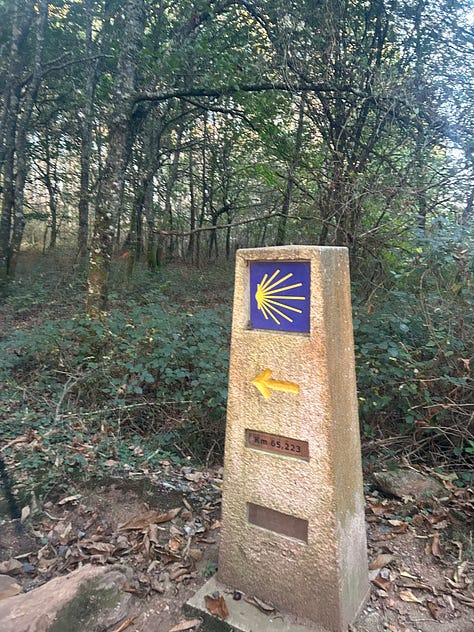

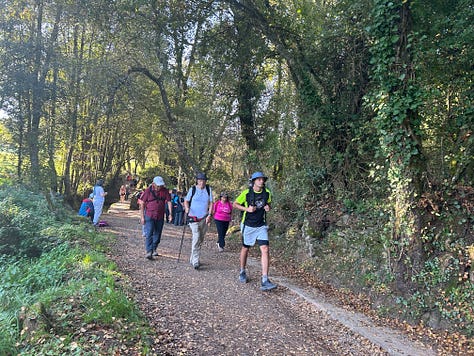

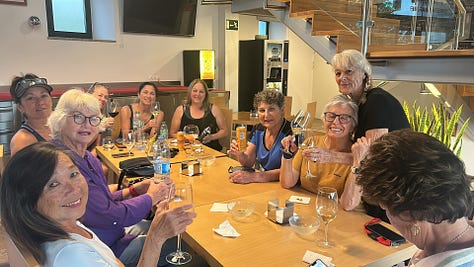
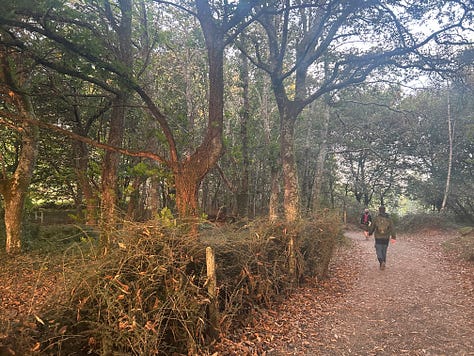





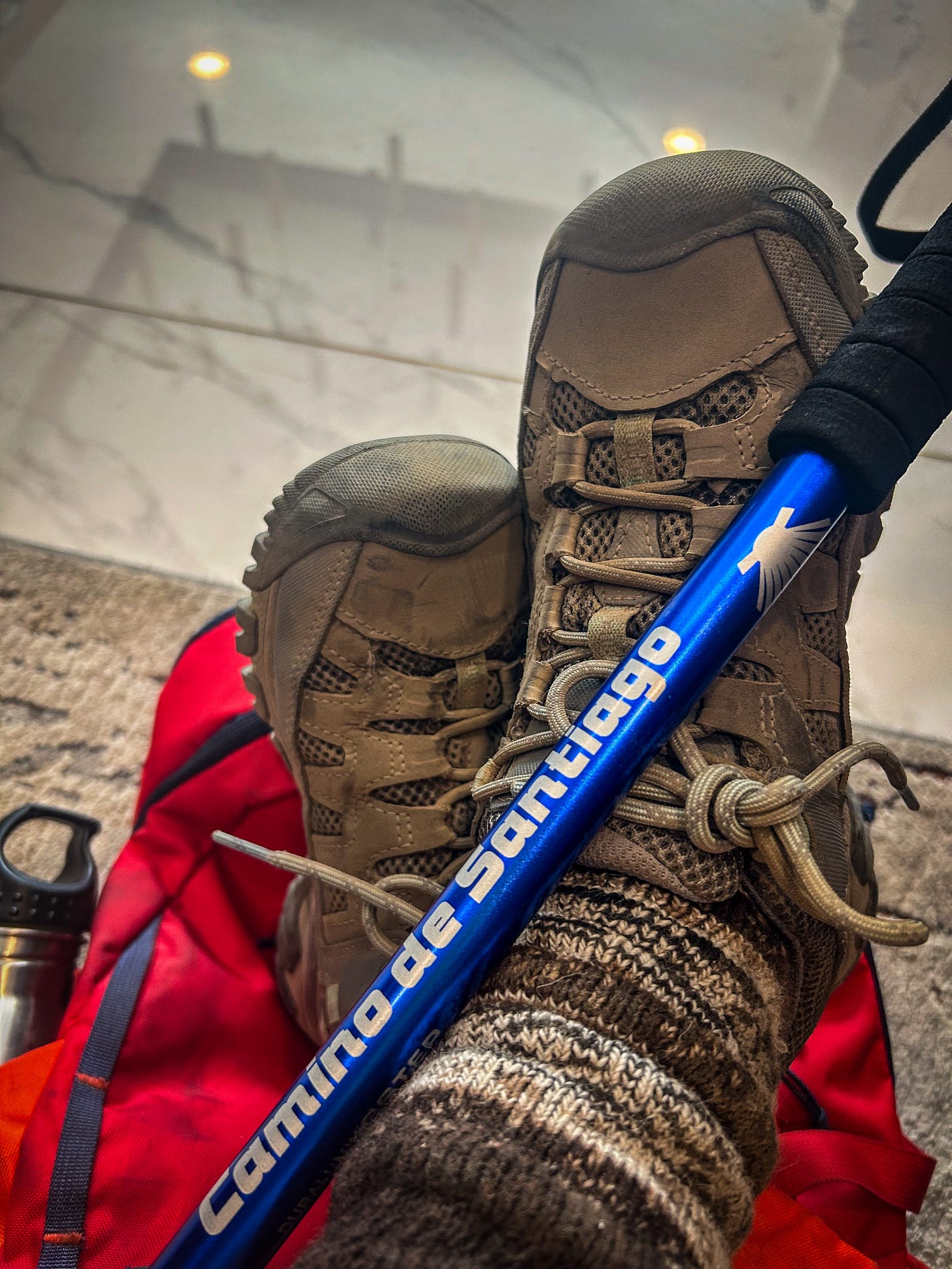
Inspiring with gentle touch of humor.
Sasha, very inspiring story. After a massive heart attack at 64 that left me needing to struggle mightily just to stand from the couch I learned about the Camino, and it inspired me. Following my doctor's advice I pushed and pushed to walk. Through near black-outs, terrifying palpitations and dizzy spells I got where I could walk three miles, all with the Camino as a goal. Now at 70 I have still not made it to the starting line of the Camino, but.... who knows. Your story says I can. Your story keeps the dream alive.